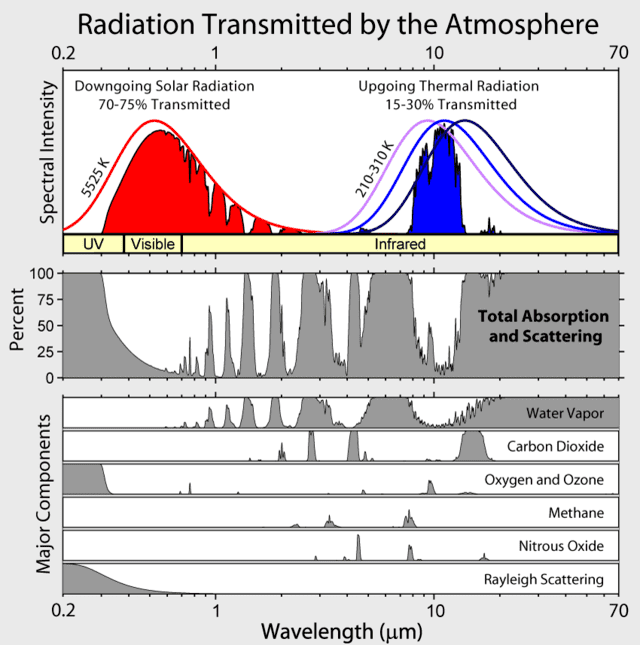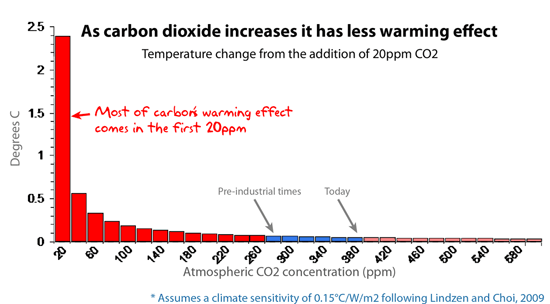RollingThunder
Gold Member
- Mar 22, 2010
- 4,818
- 525
- 155
- Thread starter
- #41
And the AGW cult keeps proving that they believe AGW religious dogma vs. real science.
AGW cult member = anti science.
ROTFLMAO.....you are sooooooooooo retarded, Klod, it is hilarious to watch you spew nutcase nonsense line this....and it is a good demonstration of the whacked out desperation of the delusional denier cultists that the OP discusses....
So....
"real science" is something you ignorant denier cult dingbats know and understand, right, that's what you're saying...
...but...according to you...
"religious dogma" is the basis for the worldwide scientific consensus on the reality of AGW, that is affirmed by every National Academy of Science on the planet and by virtually every other reputable scientific organization of any national or international standing...there are NO such scientific organizations that deny the realty of AGW...
...so...obviously!!!...you are simply too retarded to comprehend how insane that moronic claim (and you) actually are....
In the real world where the sane people live...
Scientific opinion on climate change
Wikipedia - the free encyclopedia
The scientific opinion on climate change is that the Earth's climate system is unequivocally warming, and it is extremely likely (at least 95% probability) that humans are causing most of it through activities that increase concentrations of greenhouse gases in the atmosphere, such as deforestation and burning fossil fuels.
National and international science academies and scientific societies have assessed current scientific opinion on global warming. These assessments are generally consistent with the conclusions of the Intergovernmental Panel on Climate Change, the IPCC Fourth Assessment Report summarized:
* Warming of the climate system is unequivocal, as evidenced by increases in global average air and ocean temperatures, the widespread melting of snow and ice, and rising global average sea level.[5]
* Most of the global warming since the mid-20th century is very likely due to human activities.[6]
* Most of the global warming since the mid-20th century is very likely due to human activities.[6]
No scientific body of national or international standing maintains a formal opinion dissenting from any of these main points; the last was the American Association of Petroleum Geologists,[10] which in 2007[11] updated its 1999 statement rejecting the likelihood of human influence on recent climate with its current non-committal position.[12] Some other organizations, primarily those focusing on geology, also hold non-committal positions.
The American Geophysical Union (AGU) statement, adopted by the society in 2003, revised in 2007,[54] and revised and expanded in 2013,[55] affirms that rising levels of greenhouse gases have caused and will continue to cause the global surface temperature to be warmer:
Human activities are changing Earths climate. At the global level, atmospheric concentrations of carbon dioxide and other heat-trapping greenhouse gases have increased sharply since the Industrial Revolution. Fossil fuel burning dominates this increase. Human-caused increases in greenhouse gases are responsible for most of the observed global average surface warming of roughly 0.8°C (1.5°F) over the past 140 years. Because natural processes cannot quickly remove some of these gases (notably carbon dioxide) from the atmosphere, our past, present, and future emissions will influence the climate system for millennia.
While important scientific uncertainties remain as to which particular impacts will be experienced where, no uncertainties are known that could make the impacts of climate change inconsequential. Furthermore, surprise outcomes, such as the unexpectedly rapid loss of Arctic summer sea ice, may entail even more dramatic changes than anticipated."
While important scientific uncertainties remain as to which particular impacts will be experienced where, no uncertainties are known that could make the impacts of climate change inconsequential. Furthermore, surprise outcomes, such as the unexpectedly rapid loss of Arctic summer sea ice, may entail even more dramatic changes than anticipated."
The American Meteorological Society (AMS) statement adopted by their council in 2012 concluded:
"There is unequivocal evidence that Earths lower atmosphere, ocean, and land surface are warming; sea level is rising; and snow cover, mountain glaciers, and Arctic sea ice are shrinking. The dominant cause of the warming since the 1950s is human activities. This scientific finding is based on a large and persuasive body of research. The observed warming will be irreversible for many years into the future, and even larger temperature increases will occur as greenhouse gases continue to accumulate in the atmosphere. Avoiding this future warming will require a large and rapid reduction in global greenhouse gas emissions. The ongoing warming will increase risks and stresses to human societies, economies, ecosystems, and wildlife through the 21st century and beyond, making it imperative that society respond to a changing climate. To inform decisions on adaptation and mitigation, it is critical that we improve our understanding of the global climate system and our ability to project future climate through continued and improved monitoring and research. This is especially true for smaller (seasonal and regional) scales and weather and climate extremes, and for important hydroclimatic variables such as precipitation and water availability.
Technological, economic, and policy choices in the near future will determine the extent of future impacts of climate change. Science-based decisions are seldom made in a context of absolute certainty. National and international policy discussions should include consideration of the best ways to both adapt to and mitigate climate change. Mitigation will reduce the amount of future climate change and the risk of impacts that are potentially large and dangerous. At the same time, some continued climate change is inevitable, and policy responses should include adaptation to climate change. Prudence dictates extreme care in accounting for our relationship with the only planet known to be capable of sustaining human life.[66]"
Technological, economic, and policy choices in the near future will determine the extent of future impacts of climate change. Science-based decisions are seldom made in a context of absolute certainty. National and international policy discussions should include consideration of the best ways to both adapt to and mitigate climate change. Mitigation will reduce the amount of future climate change and the risk of impacts that are potentially large and dangerous. At the same time, some continued climate change is inevitable, and policy responses should include adaptation to climate change. Prudence dictates extreme care in accounting for our relationship with the only planet known to be capable of sustaining human life.[66]"




